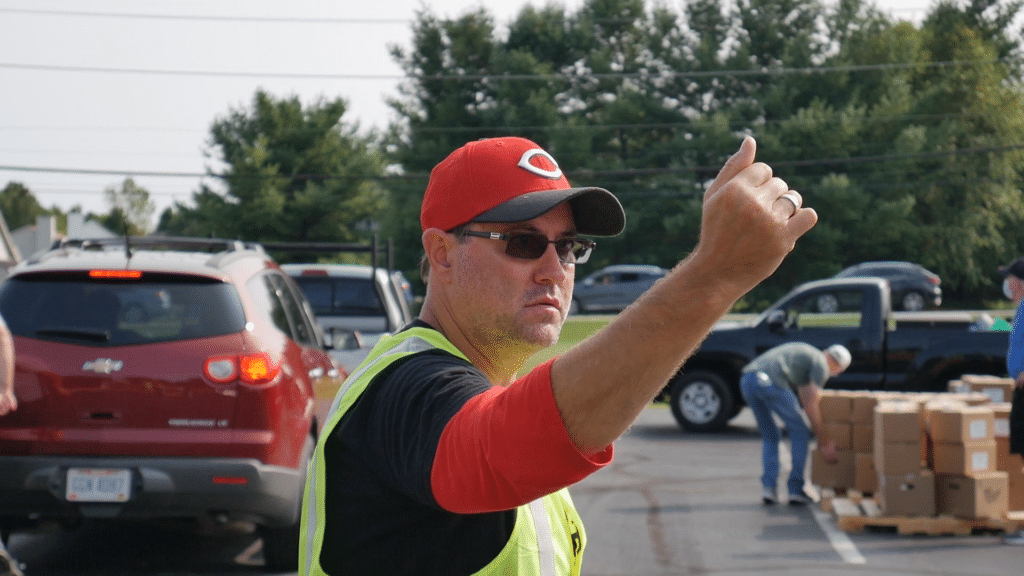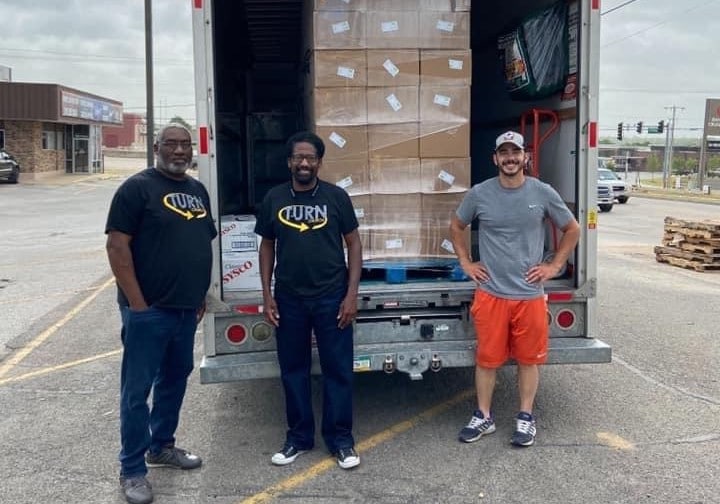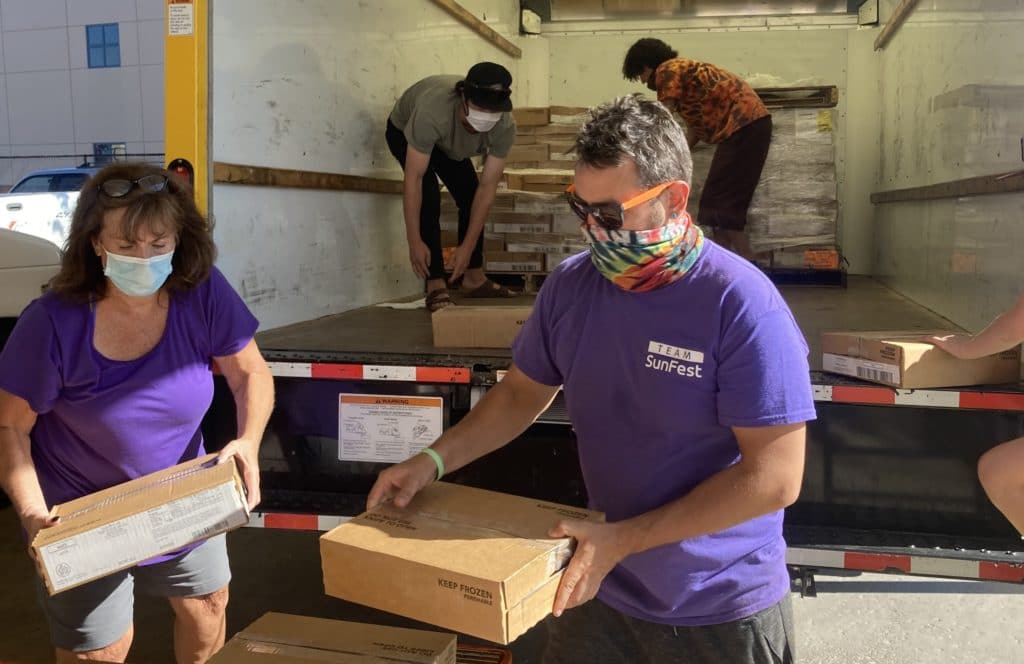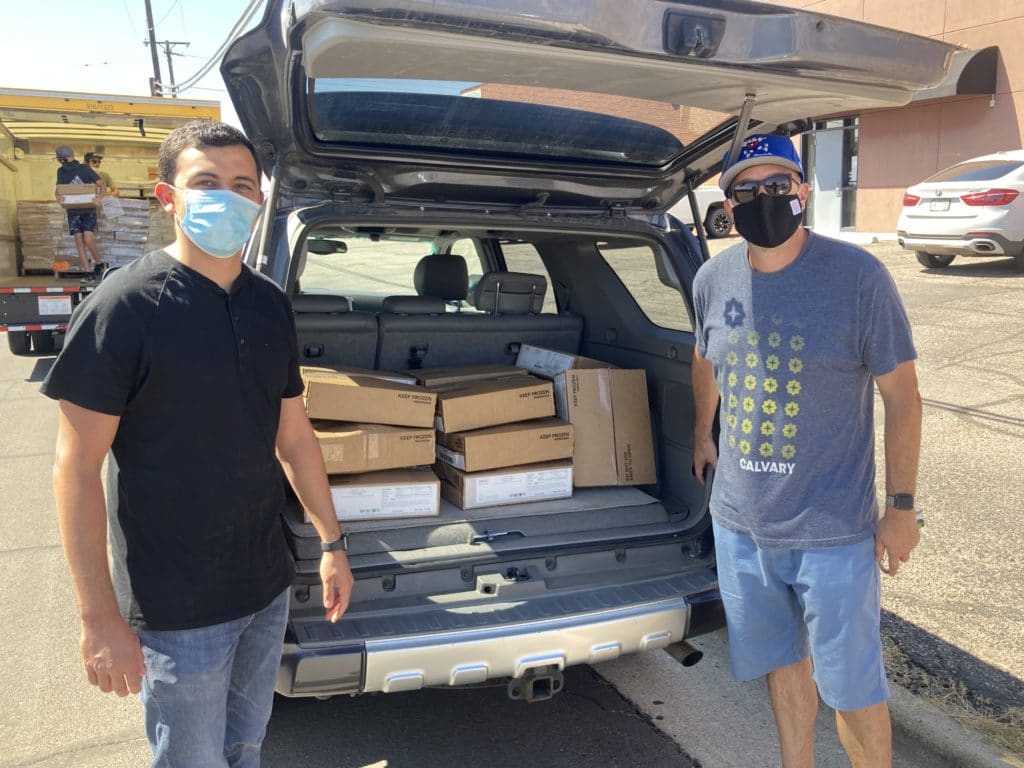WEST CHESTER, Ohio — Lakota Hills Baptist Church in West Chester, Ohio has been heavily involved, ministering in their community throughout the months since COVID-19 arrived in the spring. They’ve met needs and shared the gospel with their neighbors.
But earlier this month the church’s pastor, Travis Smalley, saw something he hadn’t seen before. When he walked up to a car to greet a family that was driving into the parking lot, Smalley saw tears.
“We’ve helped people through the pandemic,” Smalley said. “Please don’t get me wrong. We’ve ministered to people. But this was the first time I ever walked up to a car and just told somebody who I was, and they just started crying. They shared about job loss and told us this was the first time they’ve ever been in this situation. They were was just so thankful for the food.”

But Lakota Hills Baptist isn’t only passing out food. Smalley, who also serves as the North American Mission Board’s (NAMB) city missionary in Cincinnati, said volunteers shared the gospel with all 800 families who came to the church for help. At least four or five people had conversations with each family. Not a single person turned down prayer, which was not a requirement for receiving food. Five volunteers who were not a part of the church made salvation decisions through their engagement with the project.
Lakota Hills is one of more than 100 churches working through a network of Southern Baptists in the United States that are distributing food provided by the U.S. Department of Agriculture’s (USDA) Farmers to Families Program.
Rusty Gunn, pastor of Church that Matters in Sand Spring, Okla., made the initial connection with the USDA. Earlier in the year, his church had delivered 40,000 meals to children and the elderly in the community. In early May, representatives from the Farmers to Families program asked Gunn if the church would be a hub for the distribution of food boxes.

The Farmers to Families Food Box program began in April as an initiative designed to support both American producers and communities in need. So far more than 90 million food boxes have been distributed to families impacted by the COVID-19 pandemic. The boxes include four or five days of food for each family.
Gunn, who also serves as a church planting catalyst for Send Network Oklahoma through the Baptist General Convention of Oklahoma and NAMB, first helped make connections within his home state. Starting in late July, he was asked to find distribution locations throughout a variety of Midwestern states, such as Missouri, Kansas and the Dakotas. In the third phase of the program, which started in September, Gunn’s network has expanded to 32 states, primarily through Southern Baptist churches.
Church that Matters had to change delivery tactics following their first experience when traffic backed up for miles in their city. Now the church distributes the boxes daily and doesn’t announce the availability until the day they distribute them. Since their first distribution on May 18, the church has distributed 250,000 food boxes and more than a million gallons of milk.

In the last 12 weeks, the church has baptized 12 people as a direct result of the outreach.
“We’re having people who are still coming in tears, saying ‘thank you, thank you, thank you,’” Gunn said. “A man and his wife came, and they said, ‘We have zero food in our refrigerator, our cabinets. You don’t understand how much this means.’ And they were just in tears. We had another lady who came up that same day and said, ‘My daughter has seven foster children. This is helping her make it through this time right now.’ She was really struggling before. There are a lot of those stories.”
Jason Tipton, Send Relief’s national director of ministry centers in the Western United States, said he partnered with a local rescue mission and church plants throughout the Front Range region of Colorado to distribute 35,000 food boxes.

Tipton noted that distributing the food boxes has helped churches discover other needs they can meet in the area and helped them to share the gospel.
“Hospitality opens doors for ministry in other areas,” Tipton said. “When you’re actually serving, caring and building a relationship with someone, those opportunities for gospel conversations happen naturally. I’ve shared the gospel more in the last several months than I’ve probably shared in the last year pre-COVID. And a lot of this is because we’re just caring for people in need. And they ask the question, “Why are you doing this?”
For more information about how your church can respond to needs arising from COVID-19, visit sendrelief.org/covid-19-information.
Published October 1, 2020